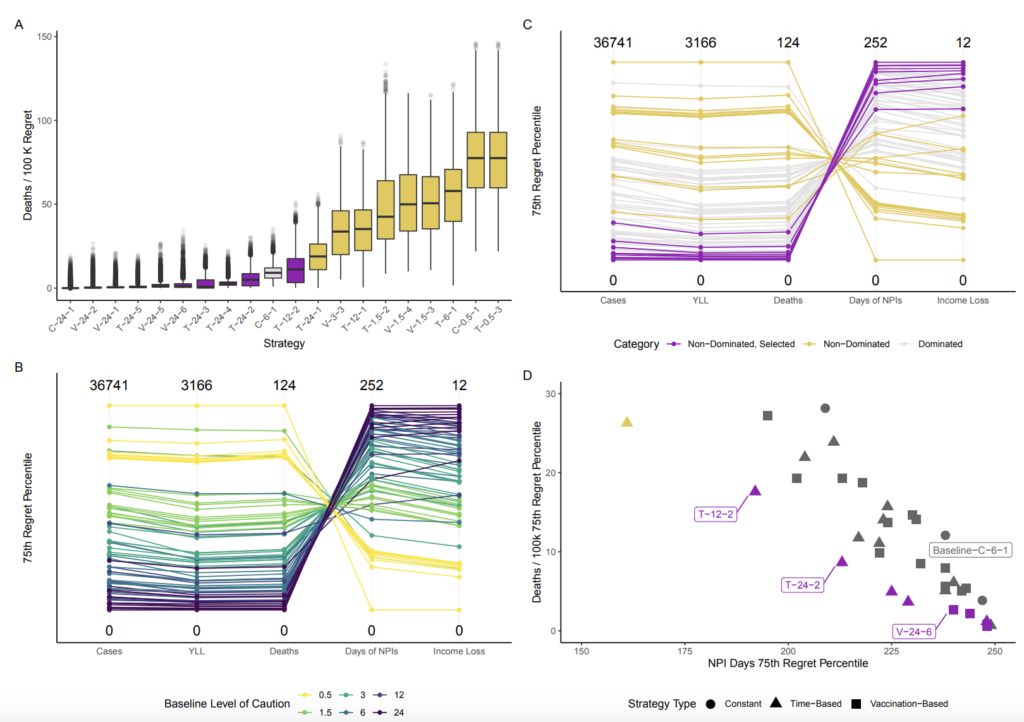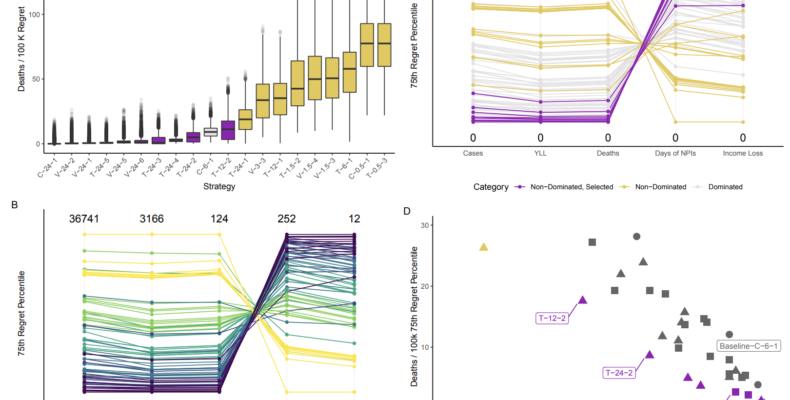Lima, Pedro Nascimento de, Robert J. Lempert, Raffaele Vardavas, Lawrence Baker, Jeanne S. Ringel, Carolyn M. Rutter, Jonathan Ozik, and Nicholson Collier
DOI: https://doi.org/10.1371/journal.pone.0259166
Abstract:
Amid global scarcity of COVID-19 vaccines and the threat of new variant strains, California and other jurisdictions face the question of when and how to implement and relax COVID-19 Nonpharmaceutical Interventions (NPIs). While policymakers have attempted to balance the health and economic impacts of the pandemic, decentralized decision-making, deep uncertainty, and the lack of widespread use of comprehensive decision support methods can lead to the choice of fragile or inefficient strategies. This paper uses simulation models and the Robust Decision Making (RDM) approach to stress-test California’s reopening strategy and other alternatives over a wide range of futures. We find that plans which respond aggressively to initial outbreaks are required to robustly control the pandemic. Further, the best plans adapt to changing circumstances, lowering their stringent requirements to reopen over time or as more constituents are vaccinated. While we use California as an example, our results are particularly relevant for jurisdictions where vaccination roll-out has been slower.

